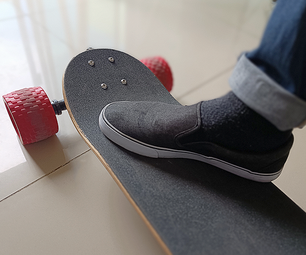Introduction: Computer Bag Bike Pannier (limited Suppies)
I had an idea a while back about how to make easy, inexpensive and multi use pannier bags. I had a lot of computer bags people had given me and had seen a lot at second hand stores. So I set my mind to putting them to work. I looked around Instructables and saw some amazing ideas so I had to try my hand at it and add my own twist. So here we go a simple, minimal sew and minimal supplies pannier bag.
What you will need.
- Computer or hard topped/handled messenger bag (removable straps and lined/water resistant).
- Needle and strong tread.
- 3-4 Med sized quick links or carbine clips.
- Nylon webbed straps (1" to 1/2" or 2 1/2cm to 1 1/2 cm. in hight).
- Stiff but thin board or plastic sheet able to be cut down to size. I used cardboard but my bag is pretty weather proof I suggest a rather thin but strong plywood or plastic sheet. *big enough to fit in the bag and still cover 90-95% of the length and height*
- *Optional adhesive (epoxy or gorilla glue)
- Scissors.
Step 1: Picking Your Bag.
This computer bag as minimal padding and lots of room for all sorts of stuff it is even expandable/collapsible via a zipper .This one it can hold a good amount of stuff in it but no so much so that it can weigh a lot. The rigged part stems from where the handle is, it's important as it adds some support and makes it easier to carry when not attached.
Step 2: Adding More Support.
Making it ridged and holding it still are vital as you do not want it rubbing your wheel or clanking in your spokes.I was lucky this bag had a slim back pocket so I added the layered and tapped cardboard backing I used here *just road it out in the rain with no issue* You do not have this pocket and have to add it to the inside. I would suggest gluing in the board to the back side of the inside of the bag. It make sure the glue you use will stick to both surfaces *wood, paper,thick plastic etc. and bag material /lining* then follow adhesive instructions and move to the next step.
Step 3: Adding More Security.
Take your webbing, in my case I used an old dog leash and cut it to about a bit shorter than the length of my bag. After you have your webbing cut, get your needle and thread and go to work. Center the strap just above the bottom of your bag and start sewing the ends down, Mind you depending on your bike type you may need it higher or lower but it should be attached to either the lower part of your frame *seen in next photo* or where the rack arm going towards the wheel meets the frame. Adjust depending on what you are working with. Sew it in about 5 places*seen above*. these will be so you can adjust it to your need or the side it is going on.
Step 4: Clip and Go!
Use your quick link(silver) or carbine clip (blue) to attach the bag at the three points on the frame *or more depending on what you need*. With strap removed attach one near the seat through one of the strap loops, the back *where the other one was* and the bottom one to the lower frame and take a test ride. Adjust as needed and you are good to go!













